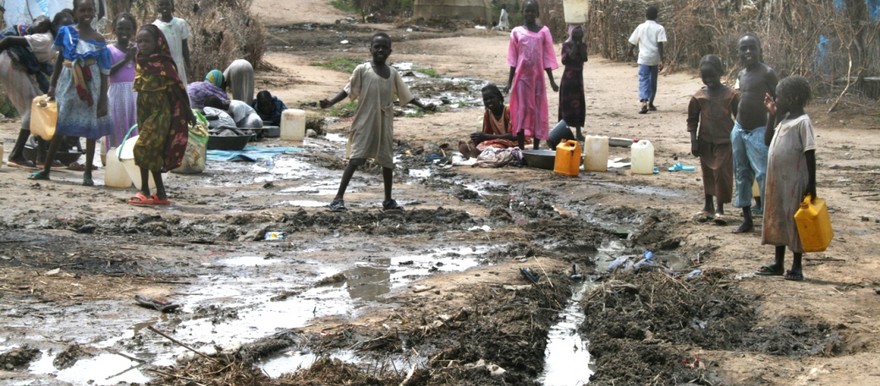The International Community is Playing Games with the Question of #Cholera_in_Sudan
Eric Reeves | July 27, 2017 | http://wp.me/p45rOG-25v
The International community is playing games with question of #cholera_in_Sudan. Almost a year into the epidemic, why have wee seen no laboratory tests confirming OR disconfirming the existence of cholera in Sudan? The UN’s World Health Organization in Geneva could quickly provide laboratory analysis of stool/fecal samples from Sudanese victims of what the Khartoum regime insists all must call “acute watery diarrhea.” Why is there only silence from the UN organizations most responsible: WHO, OCHA, and UNICEF? How can we not conclude that these agencies and the UN leadership have been threatened, and in turn intimidated, by the génocidaires who make up the National Islamic Front/National Congress Party regime?
Not to be outdone by the feckless UN agencies, the U.S. Agency for International Development today (July 27, 2017) joins in the chorus that continues to say only “acute watery diarrhea,” thereby contributing to the delay of urgently needed medical supplies to Sudan’s stricken populations.
[ Concerning these supplies, see my July 24, 2017 “Open Letter to Dr. Tedros Adhanom Ghebreyesus, Director General of the UN’s World Health Organization” | http://wp.me/p45rOG-25t/]
“As of July 7, [2017] health actors recorded more than 23,200 cases of acute watery diarrhea (AWD) since August 2016, accord to the UN World Health Organization (WHO) and the Government of Sudan (GoS) Ministry of Health (MoH).” (USAID, July 27, 2017)
More than 23,000 recorded cases—and much of the data has been screened by the Khartoum regime. What about the un-recorded cases, especially in those areas of Darfur, South Kordofan, and Blue Nile that continue to be denied humanitarian access? What about the grossly inadequate humanitarian presence in Eastern Sudan? Why should we not assume that a figure for “recorded cases” promulgated by the regime’s “Ministry of Health” is anything but a small fraction of the actual cases? If the regime won’t permit the word “cholera” to be used, why should we expect that figures offered by the same regime will have any integrity at all?
I have previously stressed that cholera is easy to diagnosis in a laboratory were stool/fecal samples of victims in Sudan provided. But of course it is also the case that if somehow the disease running rampant in Sudan is not cholera, this fact could just as easily be confirmed by labs in Geneva. Why does the UN’s World Health Organization not provide us with laboratory test results of multiple stool/fecal samples from victims of “acute water diarrhea” in Sudan?
At this late date, there is only one answer and it is very unflattering of international resolve to take seriously the vast medical crisis that has been sweeping across Sudan for almost a year.
As the rainy season in Sudan reaches its peak, conditions for the spread of cholera are terrifyingly propitious

